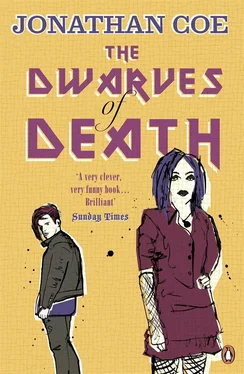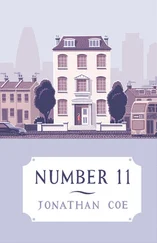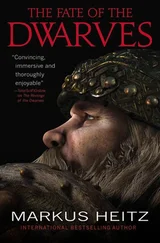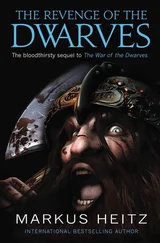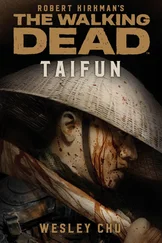Jonathan Coe - The Dwarves of Death
Здесь есть возможность читать онлайн «Jonathan Coe - The Dwarves of Death» весь текст электронной книги совершенно бесплатно (целиком полную версию без сокращений). В некоторых случаях можно слушать аудио, скачать через торрент в формате fb2 и присутствует краткое содержание. Год выпуска: 2008, Издательство: Penguin Books, Жанр: Современная проза, на английском языке. Описание произведения, (предисловие) а так же отзывы посетителей доступны на портале библиотеки ЛибКат.
- Название:The Dwarves of Death
- Автор:
- Издательство:Penguin Books
- Жанр:
- Год:2008
- ISBN:нет данных
- Рейтинг книги:4 / 5. Голосов: 1
-
Избранное:Добавить в избранное
- Отзывы:
-
Ваша оценка:
- 80
- 1
- 2
- 3
- 4
- 5
The Dwarves of Death: краткое содержание, описание и аннотация
Предлагаем к чтению аннотацию, описание, краткое содержание или предисловие (зависит от того, что написал сам автор книги «The Dwarves of Death»). Если вы не нашли необходимую информацию о книге — напишите в комментариях, мы постараемся отыскать её.
The Dwarves of Death — читать онлайн бесплатно полную книгу (весь текст) целиком
Ниже представлен текст книги, разбитый по страницам. Система сохранения места последней прочитанной страницы, позволяет с удобством читать онлайн бесплатно книгу «The Dwarves of Death», без необходимости каждый раз заново искать на чём Вы остановились. Поставьте закладку, и сможете в любой момент перейти на страницу, на которой закончили чтение.
Интервал:
Закладка:
They still hadn’t noticed that I was there. I was stooped beneath the window sill — not a very good idea, when you think about it, because it put me at eye-level with them — but it must have been too dark for them to make me out. I just crouched there and looked at these two little figures standing over Paisley’s body. One of them had his wounded hand clasped between his knees: he must have been in agony.
‘Come on now,’ the other one said. ‘Let’s get out of here.’
This produced no response other than an indistinct mutter, followed by a moan.
‘Come on, for Christ’s sake. Let’s get you down to the car.’
‘The jacket.’
‘What?’
‘We’ll have to take his jacket. It’s got my blood on it, and my prints.’
‘Jesus Christ.’
He dropped his club, rolled Paisley’s body over and got the jacket off as best he could.
‘And his trousers. It’s all over his trousers, look.’
So they took off his trousers, too, and wrapped them around the still-bleeding hand.
‘Come on, let’s get shot of this place. Let’s go.’
Just as they were leaving, the injured one paused, reflectively. He shook his head and said: ‘I didn’t enjoy that much.’
‘Me neither.’
And then they clattered off down the stairs, these two little men, leaving me to shake and shiver beneath the window, alone with Paisley’s corpse. I heard their two car doors opening, and heard the car drive off even before the doors had had time to close.
I stayed there for a while, God knows how long. I didn’t go anywhere near the body, though. I didn’t even step over it — I skirted right round it, giving it as wide a berth as the room would allow. Then I too climbed down the stairs; slowly, one at a time, clutching at the banister. When I got to the front door I stood in the doorway, drinking in the fresh air. I don’t think, at that point, that my mind had taken in what I’d just seen.
I guessed, afterwards, that the police must have had their eye on that house for quite some time. Perhaps they’d even been tapping the phone or something. The first thing I saw when I stepped outside, anyway, was a police car tearing down the street in my direction. Before I knew what was happening it had pulled up at the front door; so the two of them must have got a good look at my face as I stood there wondering what the hell I was supposed to do next. Then, after a few fatal moments of indecision, my brain stuttered into action again. In the time it took them to get out of the car, I realized that no explanation I could give for my presence would stop them from suspecting me of being involved in the crime; perhaps of having committed it myself.
So I turned and ran back up the stairs. I could hear them coming after me. When I reached the first landing I remembered the broken window, clambered through it and crouched, ready to jump. I’m sure they would have got me, sure they would have caught up with me, if it hadn’t been for those missing stairs. There was the sound of wood giving way and a cry of pain and I knew that one of them had fallen through.
‘Are you all right?’ his mate was calling. ‘Are you all right?’
This was my chance. I jumped and landed in the middle of all this long wet soft grass. The whole garden was like a jungle. I ran right to the bottom, scrambling and tripping over brambles, branches, old broken milk bottles — all sorts of junk — and then at the end I climbed over the wall and found myself in a quiet, unlit alleyway.
I was more terrified than I had ever been in my life. Much more. So although I was tired, it wasn’t difficult to carry on running. While I was running, you see, I couldn’t stop to think.
∗
I wanted to get the difficult part out of the way — to describe what happened, that evening in Islington. The temptation now, of course, is to go straight on and tell you how it all ended, but there are a few things I have to explain first. I have to explain about Madeline, and Karla, and London, and why I wanted to join Paisley’s band in the first place. It’s hard to know where to start — hard to know if there was a specific point where things started to go downhill. But I think there was. It can be traced back to a particular evening, and to a particular culprit. Yes, I know where to point the finger of accusation.
Because it all started, as far as I’m concerned, with Andrew Lloyd Webber.
Theme One
Boy afraid prudence never pays
and everything she wants costs money
MORRISSEY, Girl AfraidWhy do I dislike the music of Andrew Lloyd Webber so much? I suppose for the same reason that I dislike London: because everybody else flocks to it as if it were the only thing worth experiencing on earth. Take that night at Phantom of the Opera. It was a Thursday evening, more than two weeks before the events which I’ve just described. I hadn’t seen Madeline for days and I was really looking forward to being with her again. We should have been having fun; instead it was a disaster. And it was all that bastard’s fault.
Oh, there were some OK moments, I suppose. A nice cadence in ‘Think of Me’ which sounded remarkably like Puccini’s ‘O Mio Bambino Caro’, and a recurring phrase which made me think insistently, for some reason, of Prokofiev’s Cinderella. But I couldn’t stand the way he jumbled it all together with no concern for style, for period, for genre — bits of pastiche operetta leading into passages of lumpen rock music, and endless chromatic scales on a Gothic-sounding organ which would still have seemed like a cliché forty years ago if you’d heard them on the soundtrack to a Universal B-movie. And yet the audience lapped it up. They couldn’t get enough of it. I just cannot understand this phenomenon.
And what a hassle, what a ridiculous, exhausting palaver I’d had to go through just to listen to that load of old nonsense. Have you any idea how hard it is to get tickets to that show? Did Madeline have any idea when she suggested it, I wondered? After endless enquiries at the box office, I was told that my best bet was to come along on the day itself, early. So I joined the queue at five o’clock in the morning — five o’clock, do you hear me — behind a bunch of Japanese businessmen, and I stayed until nearly half past ten (which made me two hours late for work) only to see the last set of tickets go to some people five places ahead of me in the queue. So then I phoned some agency in my lunch hour, and they said they did have some tickets — returns or something — but I could only have them if I came over and paid for them in person, and then they fished these things from under the counter and I ended up shelling out ninety pounds (I feel ill just thinking about it) for two seats. So you can imagine what sort of mood I was in by the time I met Madeline at the theatre, and things didn’t improve when we took our seats — which were quite good ones, actually — and just as the show was about to start, this six-foot monster came and sat right in front of me, so that for the whole evening all I had a view of was the back of his neck. I couldn’t see a damn thing. I might just as well have stayed at home and listened to the record.
Not that I paid much attention to the music anyway, to be honest. A date with Madeline was always a special occasion, and most of the time I was thinking about what we would do afterwards, whether we would go for a drink, what I’d say to her, whether she would let me kiss her. I’m sure that better composers than Andrew Lloyd Webber have suffered from the fact that shows and concerts are ten per cent works of art, and ninety per cent stopping-off points in a mating ritual. It’s funny to think of someone like Debussy agonizing over the orchestration of some bar or other of Pelléas et Mélisande, not realizing that most of the men in the audience would be too busy wondering whether they could get away with putting a hand on their girlfriend’s knee to even bother listening to the music. You can’t help it, it’s natural. Every move she made, every little unconscious gesture was more interesting to me than anything that was happening on the stage (not that I could see any of it). That bit, for instance, which is supposed to have everybody gasping, when the chandelier suddenly comes right down from the top of the theatre — there was a time when Madeline scratched her cheek which was far more exciting than that. I was conscious of every little change in the distance between us. Every time she leaned towards me my heart beat faster. At one point she bent over, close to my side, and I thought, my God, she’s actually going to touch me. But her shoe had come off, and she was just putting it on again.
Читать дальшеИнтервал:
Закладка:
Похожие книги на «The Dwarves of Death»
Представляем Вашему вниманию похожие книги на «The Dwarves of Death» списком для выбора. Мы отобрали схожую по названию и смыслу литературу в надежде предоставить читателям больше вариантов отыскать новые, интересные, ещё непрочитанные произведения.
Обсуждение, отзывы о книге «The Dwarves of Death» и просто собственные мнения читателей. Оставьте ваши комментарии, напишите, что Вы думаете о произведении, его смысле или главных героях. Укажите что конкретно понравилось, а что нет, и почему Вы так считаете.
